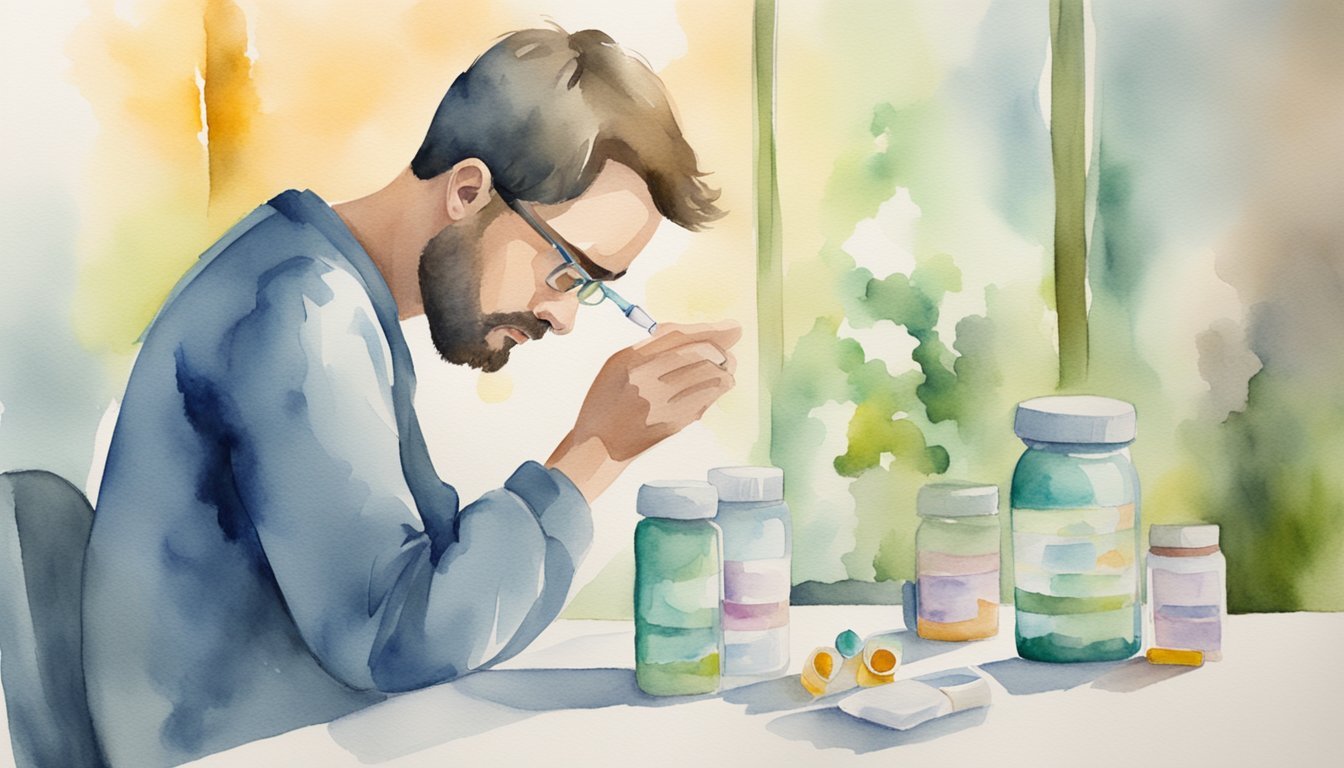Understanding Bipolar Disorder
Defining Bipolar Disorder
Bipolar disorder, also known as manic-depressive illness, is a mental health condition that causes unusual and extreme shifts in a person’s mood, energy, activity levels, and concentration. These dramatic mood swings can affect an individual’s ability to carry out day-to-day tasks and often include episodes of both mania and depression.
Symptoms and Diagnosis
People experiencing bipolar disorder exhibit a range of symptoms during manic and depressive episodes. Here is a brief overview of common symptoms:
- Manic episodes: Increased energy, agitation, feeling wired, racing thoughts, excessively high self-esteem, decreased need for sleep, impulsivity, and engaging in risky behaviors.
- Depressive episodes: Persistent feelings of sadness, hopelessness, fatigue, irritability, loss of interest in activities, changes in appetite and sleep patterns, and thoughts of death or suicide.
To diagnose bipolar disorder, a mental health professional will gather information from the individual, as well as from their family members and friends. The process might also include a detailed medical history, a physical examination, and a comprehensive mental health evaluation.
Causes and Triggers
The exact cause of bipolar disorder is not fully understood, but it is believed to result from a complex combination of genetic and environmental factors. Individuals with a family history of bipolar disorder or other mental health conditions, such as anxiety disorders, are more likely to develop the disorder themselves.
Environmental triggers, such as stress or a traumatic event, can contribute to the onset or worsening of bipolar disorder symptoms. Rapid cycling, where a person experiences four or more mood episodes within a year, can also occur in some cases.
It is essential to recognize that bipolar disorder is a lifelong condition requiring ongoing treatment and management. With proper support and care, individuals with bipolar disorder can lead happy, healthy lives. Medications, therapy, and lifestyle adjustments play a crucial role in stabilizing mood swings and improving overall well-being. While treatment plans vary for each individual, consistency in medication and therapy can significantly enhance daily functioning. Just as illnesses like the flu require fever reducers and recovery time, managing bipolar disorder requires patience, proper care, and ongoing support.
Treatment and Management of Bipolar Disorder

Bipolar disorder, also known as manic depression, is a mental health condition characterized by extreme mood swings that include emotional highs (mania or hypomania) and lows (depression). Treatment and management of bipolar disorder often involve a combination of medication, psychotherapy, lifestyle modifications, and support.
Medication and Psychotherapy
A common treatment plan for bipolar disorder includes mood stabilizers such as lithium, anticonvulsants like carbamazepine and lamotrigine, and atypical antipsychotics such as quetiapine. Antidepressants may also be prescribed but require careful management as they sometimes induce manic episodes.
Psychotherapy also plays a significant role in managing bipolar disorder. Cognitive behavioral therapy (CBT) helps individuals identify and change negative beliefs and behaviors, while interpersonal and social rhythm therapy (IPSRT) focuses on stabilizing daily routines and improving communication skills. Psychoeducation helps patients and their families better understand the illness and cope with challenges that arise from bipolar disorder.
Lifestyle Modifications and Support
Maintaining a stable routine, exercising regularly, and prioritizing sleep can help individuals with bipolar disorder manage their sleep patterns and overall well-being. It is crucial to stick to a treatment plan prescribed by a psychiatrist.
Emotional support from family, friends, and support groups can be beneficial. Organizations like the National Alliance on Mental Illness offer resources, and local support groups can help individuals affected by bipolar disorder to connect with peers who have similar experiences.
Emerging Therapies and Ongoing Research
Researchers continue to explore new therapies and interventions for bipolar disorder. Electroconvulsive therapy (ECT) is sometimes recommended for individuals with severe depressive or manic symptoms, or who are unresponsive to medication. Although ECT has proven effective, it can cause side effects such as memory loss and confusion.
Scientists are also investigating the potential of novel medications, the molecular basis of bipolar disorder, and the relationship between genetic factors and the development of the condition. As our understanding of the disease grows, new and more effective treatments will likely become available.

